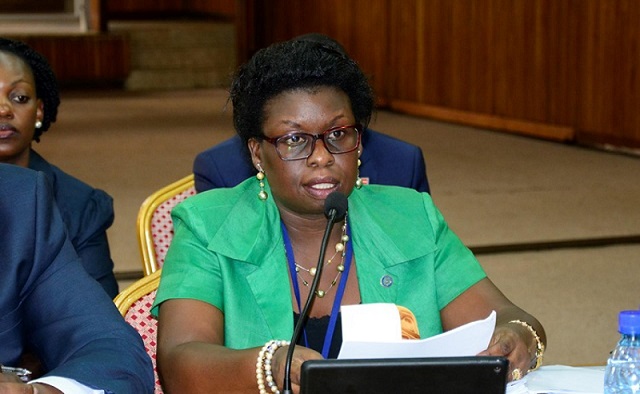
Disagreement unavoidable
After watching the spectacle, Fred Muhumuza, a development economist and former advisor to the Minister of Finance told The Independent in an interview that public disagreements between URA and the Ministry of Finance officials could be a sign of “lack of harmony between URA and Finance in their daily work”.
“And that is not a good thing,” he said, “the government is not one; it is still operating in silos.”
He said, however, disagreements between URA and Ministry of Finance are unavoidable.
“Doris Akol is dealing with the realities on the ground and the Ministry of Finance is dealing with the assumptions,” Muhumuza said, “Some of those assumptions do not come through.”
Muhumuza said generally the economy has not grown as fast as expected and it is causing problems for the government.
“Demand is very slow and income tax is not growing because not many jobs are being created,” he told The Independent.
Muhumuza said that one of the assumptions the MoFPED relied on to set the 2019/20 revenue target was the Final Investment Decision in the oil sector which was supposed to come in August but has not come.
He said that this would have meant that people investing in the oil sector would by now have brought in a lot of money for investments. But that did not happen and there is no way URA can tax what has not happened. That is affecting the economy greatly, according to Muhumuza.
The other issue Muhumuza talks about is performance of international taxes. He says international trade is changing, where experts are saying that the tax authority should facilitate trade and not tax trade – the assumption is that URA facilitates traders so they perform well, make profit which could be taxed– that too has not happened.
Senior officials at the Ministry of Finance who spoke on condition of anonymity to The Independent on Jan.20 appeared to agree with Muhumuza.
Even Henry Musasizi, the chairman of the Finance Committee appeared unsatisfied with Akol’s explanation and invited her to reappear alongside the Minister of Finance to explain further. Musasizi told The Independent on Jan.15 that the Committee had summoned the Minister of Finance to appear to clarify on how they arrived on the revenue target for FY2019/2020.
One official said Akol should have been more direct in her explanations to the Parliament Committee because lack of compliance by taxpayers is only part of the story.
The official explained that average revenue growth has been 13% year-on-year, but this year so far, it is about 7% which means there are more problems away from the other factors.
“There is something that needs to be explained,” the official said.
The official said that in setting the target, the ministry looks at projections of economic growth, inflation, new policies on taxation, and compliance efforts on the side of URA.
The official said URA’s problem is that the revenue collection for FY2019/20 is “too ambitious”.
The official said Akol should have made this point before the committee instead of claiming the target is “unsupported”. Akol should have said there are certain projected revenues that have not materialised that might make it hard for her to collect the Shs20.3 trillion.
For instance, the official said government was supposed to start a rental solution which should have fetched Shs157 billion which has not started. The other was the proposal to implement the digital stamps solution on excisable goods which is only going to be implemented for a few months of the financial year. Also, the government thought it would get about $100million (Approx.Shs370bn) from the MTM license (factored to come in September) which did not come through. “Those factors could have partially led to the shortfall for the half year,” the official said.
 The Independent Uganda: You get the Truth we Pay the Price
The Independent Uganda: You get the Truth we Pay the Price






Most of the targets that are set for AKOL are over what is realistic and this is deliberate to make her look a failure and therefore make KAGINA’s tenure a phenomenal success.
She just happens to come from the wrong post code